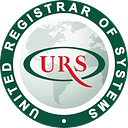Benefits of Product Testing Laboratory
A product testing laboratory is a facility equipped with the necessary tools and equipment to perform various tests and evaluations on products. This is to ensure that they meet certain standards, regulations, and quality requirements. The purpose of product testing is to identify any potential problems, weaknesses, or areas for improvement in a product, and to assess its performance, safety, and reliability.
Product testing laboratories typically offer a range of testing services, including mechanical testing, electrical testing, environmental testing, chemical testing, and more. These tests can be performed on a wide variety of products, including electronics, toys, cosmetics, medical devices, building materials, and many others.
The exact process of product testing varies depending on the type of product and the testing laboratory. However, it typically involves preparing the product for testing, conducting the tests, and then analyzing the results. In some cases, the results of product testing can be used to make changes to the product design or manufacturing process in order to improve its performance or quality.
It is imperative to note that product testing is typically performed by third-party laboratories that are independent of the manufacturer. This helps to ensure that the results of the testing are impartial and unbiased and that the testing process is not influenced by any commercial or financial interests.
Benefits of Product Testing
There are many benefits to product testing in a laboratory setting, including:
1. Improved product quality: By testing products before they are released to the market, product testing can identify and address any issues or flaws in the design or manufacturing process, leading to improved overall product quality.
2. Increased safety: Product testing can help to ensure that products are safe for consumers to use, by testing for potential hazards and evaluating compliance with safety standards and regulations.
3. Enhanced customer satisfaction: By producing high-quality and safe products, companies can increase customer satisfaction, leading to better customer relationships and increased brand loyalty.
4. Reduced risk of liability: By conducting thorough product testing, companies can reduce the risk of liability in the event of a product failure or malfunction, as they can demonstrate that they have taken appropriate steps to ensure the safety and quality of their products.
5. Improved market competitiveness: By testing products and making necessary improvements, companies can gain a competitive advantage in the marketplace by offering products that are of higher quality and reliability than those of their competitors.
6. Increased efficiency and cost savings: By identifying and addressing potential problems during the testing phase, companies can avoid the time and expense of having to make changes or corrections after a product has already been manufactured and released to the market.
Overall, product testing in a laboratory setting is an important step in the product development process, helping companies to produce better quality products, reduce risk, and improve their competitiveness in the marketplace.
